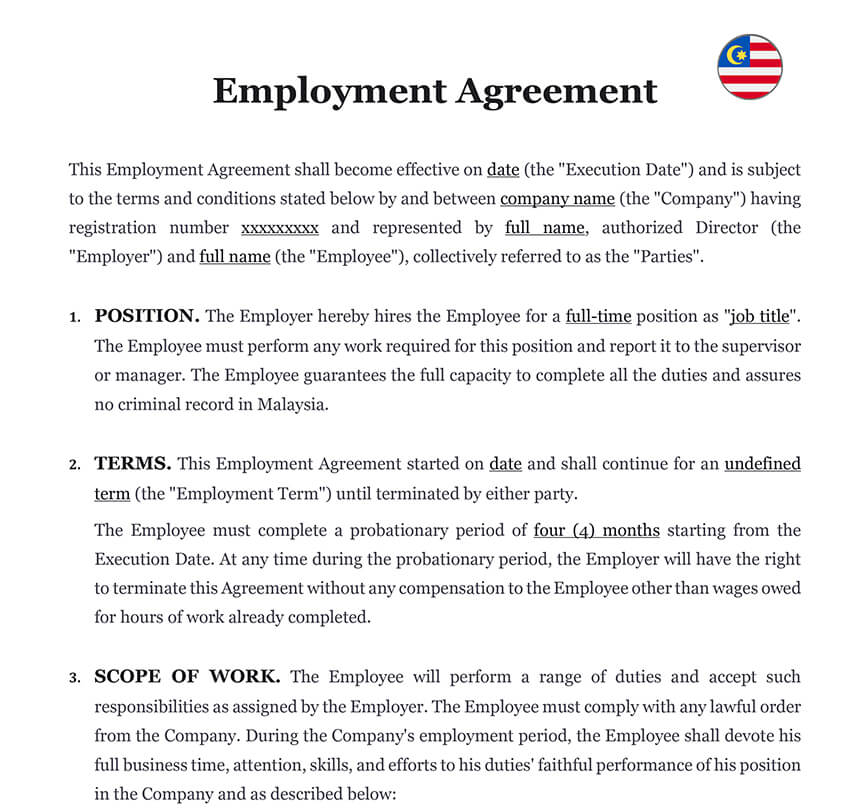Why is the employment contract more secure?
An Employment Contract provides greater job security for employees in Malaysia compared to a freelance contract. Under an employment contract, employees are entitled to various benefits such as paid leave, medical benefits, and retirement benefits, which provide a safety net in case of unexpected events such as illness or injury. In contrast, freelancers may not have the same level of protection and may not be entitled to these benefits.
Moreover, an employment contract provides a more stable source of income as employees are paid a fixed salary, while freelancers may not have a guaranteed income and may have to compete for projects.
This greater job security can help reduce stress and uncertainty for employees, and can also benefit businesses by reducing turnover and improving employee morale.
What is the main difference between an employment and a freelance contract?
In Malaysia, employment contracts can provide greater consistency for businesses compared to freelance contracts.
| ➤ Employment contracts set out clear expectations for employees in terms of working hours, job duties, and performance standards, which can help ensure that their work is done consistently and to a high standard. |
| ➤ In contrast, freelancers may work on a project-by-project basis, which can lead to inconsistencies in quality and work output. |
| ➤ Freelancers may also have to balance multiple projects at once, which can make it difficult to prioritise work and ensure that all projects are completed to a high standard. |
| ➤ By providing a consistent source of work, employment contracts can help businesses build and maintain a strong reputation for quality and reliability. |
| ➤ This consistency can also benefit employees by providing a more predictable and stable work environment, which can reduce stress and improve job satisfaction. |











